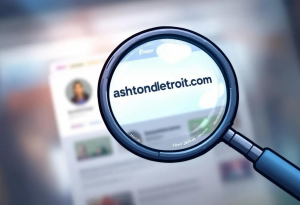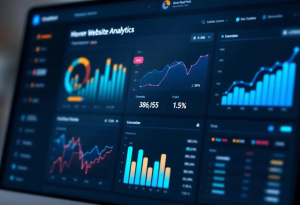SEO for Small Businesses: A Step-by-Step Guide

Running a small business is like juggling chainsaws while riding a unicycle, right? You’re managing stock, keeping customers happy, and trying to remember to breathe. SEO? It’s probably last on your list. But here’s the thing: it doesn’t have to be a monster. Think of SEO as your digital welcome mat, guiding the right people to your door. This is about getting seen in your local market and beyond. I’m going to break down the process into bite-sized chunks. Ready?
SEO: Why Bother? (Especially When You’re Small)
Okay, quick definition: SEO, or Search Engine Optimization, is tweaking your website to rank higher on Google. Why should you care? Simple. When people search for what you sell, you want to be the first shop they see. Forget expensive ads; SEO gives you a potentially massive return over time.
SEO can be a game-changer for small businesses. You might not have the marketing budget of a mega-corp, but smart SEO can attract targeted traffic and grow your business organically. Let’s get started.
Unlock Your Online Potential: Smart Keyword Research
Keywords are the bedrock of SEO. It’s about understanding the exact words your customers use when searching for your stuff. No more guessing games – let’s look at data.
Here’s how to nail it:
- Brainstorm: Jot down your products and services. How would your customers describe them?
- Tools are your friends: Google Keyword Planner, Ahrefs, SEMrush, Moz Keyword Explorer – these tools reveal relevant keywords, search volume, and competition. Many offer free trials.
- Spy on the competition: What keywords are your rivals targeting? Great intel.
- Go long-tail: Think longer, specific phrases (e.g., “best dog groomer downtown Chicago”). Less traffic, but higher conversion rates. Why? Specific intent.
Example: Imagine you run a cozy bookstore in Seattle. Instead of just “bookstore,” try “rare first editions Seattle,” “used bookstore Capitol Hill,” or “signed copies science fiction Seattle.” See the difference?

On-Page SEO: Make Your Website Irresistible to Search Engines
On-page SEO is about tweaking elements within your website to boost its ranking. We’re talking about making it easy for search engines to understand what you offer.
The must-have elements:
- Title Tags: These appear in search results. Keep them short, catchy, and include your main keyword.
- Meta Descriptions: The short blurb under the title. Entice people to click!
- Header Tags (H1-H6): Structure your content. H1 for the main title, H2-H6 for subheadings.
- Content is king (and queen): Create killer content that uses your keywords naturally. Don’t stuff ’em! Focus on value.
- Image Optimization: Descriptive file names and alt text. Help search engines “see” your images.
- URL Structure: Clean, descriptive URLs that include keywords.
Example: A page about “organic dog treats Seattle” could have a title tag like “Organic Dog Treats Seattle | [Your Store Name]”, a meta description like “Healthy, delicious organic dog treats made in Seattle! Shop now!”, and a URL like “/organic-dog-treats-seattle.”
Building Authority: Link Building Strategies for Small Businesses
Think of links from other websites as votes of confidence. Search engines see these links as signals that your website is a valuable resource.
Here’s how small businesses can get those “votes”:
- Local Directories: Yelp, Yellow Pages, industry-specific directories. Get listed!
- Guest Blogging: Write for other websites in your niche. Include a link back to your site.
- Broken Link Building: Find broken links on other sites and offer your content as a replacement. Smart move.
- Create Link-Worthy Content: Blog posts, infographics, videos… make stuff people want to link to.
- Partner Up Locally: Cross-promote each other’s websites with other local businesses.
Important: Focus on quality links from reputable sites. Buying links? Bad idea. It’ll hurt your rankings.
Dominate Your Neighborhood: Local SEO Essentials
Brick-and-mortar businesses, listen up! Local SEO is critical. It’s about attracting customers in your area.
The local SEO toolkit:
- Google Business Profile (GBP): Claim and optimize your GBP listing. This is what shows up in Google Maps.
- NAP Consistency: Name, Address, Phone number. Keep it exactly the same across your website, directories, and social media.
- Online Reviews: Beg (politely!) for reviews on Google, Yelp, etc. Positive reviews are gold.
- Local Keywords: Sprinkle “Seattle,” “Ballard,” or your neighborhood into your website content.
- Local Content: Blog about local events, attractions, or community news.
Example: A GBP for that bookstore would include photos, address, phone number, hours, customer reviews, and a link to your website. Post regular updates about new arrivals or events.
Mobile-First Mindset: Is Your Website Ready for Smartphones?
News flash: most people browse on their phones. If your website isn’t mobile-friendly, you’re invisible to a huge chunk of potential customers.
Mobile must-haves:
- Responsive Design: Your website should adapt to any screen size.
- Speed Matters: Optimize for fast loading times on mobile.
- Easy Navigation: Make it a breeze for mobile users to find what they need.
- Mobile-Friendly Content: Short paragraphs, big fonts. Easy to read on a small screen.
- Clickable Phone Numbers: Make it dead simple to call you.
Track Your Progress: SEO is a Marathon, Not a Sprint
SEO is ongoing. Track your results and tweak your strategy. Google Analytics and Google Search Console are your best friends here. Monitor traffic, keyword rankings, and more.
What to watch:
- Organic Traffic: Traffic from search engines.
- Keyword Rankings: Where you rank for your target keywords.
- Conversion Rate: Percentage of visitors who buy, sign up, or take action.
- Bounce Rate: Percentage of visitors who leave after viewing one page. High bounce rate = problem.
- Time on Page: How long people stick around. Longer = better.
Analyze these metrics to see what’s working and what’s not. Then, adjust your course!
Final Thoughts: Play the Long Game
SEO takes time. It’s not a get-rich-quick scheme. But the long-term rewards are worth it. Stick with these steps, stay consistent, and watch your business grow.
Don’t be afraid to experiment! SEO is always changing. Stay updated on the latest trends. And remember, you’re not alone! Online courses, SEO consultants, and helpful communities are all at your fingertips.




